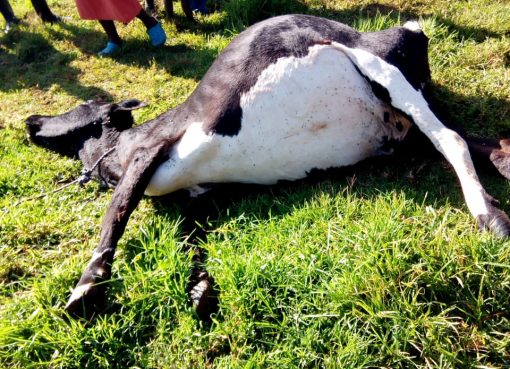Smallholder farmers in Bomet County have a reason to smile as they count the benefits they have reaped through the use technical skills imparted on them by Smallholder Dairy Commercialisation Programme (SDCP).
The programme which is sponsored by International Fund for Agricultural Development (IFAD) began in Bomet in 2007 and has recorded remarkable outcomes not only in improving production but also ensuring that farmers get access to essential marketing connections.
SDCP programme was however handed over to the County Government of Bomet Thursday in an event that took place at Chepkirip area of Kembu Ward, Bomet County.
The event was attended by representatives of 36 dairy groups from Sugumerga, Kembu and Ndaraweta regions piloted by SDCP for training on dairy sector.
Daniel Kimoro, representing SDCP Nakuru office said the programme has seen farmers engage in the dairy sector with an entrepreneurial mindset and has seen more money put in their pockets.
Kimoro said before the programme begun in Bomet, many farmers relied on the old traditional methods of rearing livestock, a practice which he said often led to death of dairy cows as well as poor nutrition among family members.
He said the dairy sector in Bomet was currently market driven and that members of the 36 groups have proven to have a clear understanding of dairy market and have been equipped with vital technical skills that have not only improved the production process but also increased enterprise skills.
He said, before the training, over 75 per cent of milk produced in the County was sold outside processing sector due to the fact that residents of Bomet preferred unprocessed milk and that there were insufficiencies in formal dairy trading.
Joseph Kenduiywo from Chepkirip area, who was recognised as the best model farmer, said since he embraced the programme, he has done away with low quality dairy cow breeds and had taken advantage of subsidized artificial insemination services to improve his animals.
Kenduiywo prouds himself of an Ayrshire breed he claims to be 93 per cent in purity while his Frisian is almost a pure breed with a standing of 97 per cent.
“Since we were taught on how to improve our breeds, I have never looked back. I have been serving my animals with imported semen from pure breeds through artificial insemination,” he said.
He added “initially my mother was very skeptical about the whole thing. She used to wonder how a human being can serve a cow on heat. Even when the cow calved, she ran away in fear but thank God now she has embraced the AI technology and is leading the older generation into it.”
The middle-aged farmer said SDCP has helped him in keeping records on all daily operations in the farm, a skill, he said, has made it possible to assess whether he is running at a profit or not.
“before the programme, we used to just let the animals graze in the fields but we have cultivated all the fields and grown quality fodder including grass, Lucerne, sweet potatoes and nappier grass among other pastures that we store for our animals while the extras are put up for sale during dry season,” he said.
Daniel Keter, a member of IFAD National steering committee said they were pleased with the results of the programme and that September 30 marked the completion not the end of the whole idea.
Keter said Bomet was given a total of Sh. 77 million with Sh 25 million going to capacity building that has enabled farmers take charge of their own affairs.
He said all structures identified at the beginning of the programme have been put in place saying the groups would serve as examples which other farmers can emulate for better and even the best results.
He however urged farmers to form, or join existing, dairy cooperative unions which, he said, would not only improve their bargaining power but also enable them get access to financial services such as loans.
“Dairy cooperatives unions will help you have your own shares, root out unfair competition and allow safe keeping for your money. It will provide you with a platform to advocate for issues affecting you as smallholder dairy farmers,” Keter told the farmers.
By Kipngeno Korir
Sunday, June 1, 2025



